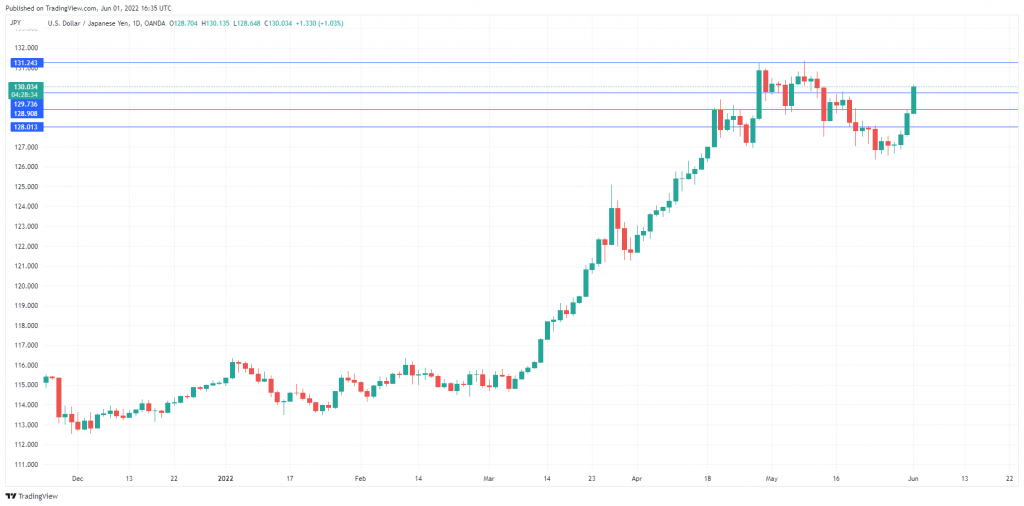The Japanese yen continues to lose ground, as USD/JPY has punched above the symbolic 130 line. In the North American session, USD/JPY is trading at 130.01 up 1.02% on the day.
The U.S. dollar is having its way with the yen this week as USD/JPY has surged 2.23%. The driver behind the yen’s plunge is an upswing in U.S. Treasury yields. The 10-year yield rose from 2.84% to 2.93% today, and, as we have often seen, the yen finds itself at the mercy of the U.S./Japan rate differential and is sharply lower today.
BoJ Stays Course Despite Higher Inflation
Most of the major central banks have embarked on rate-hike cycles in order to contain spiralling inflation, with the noticeable exception of the Bank of Japan. The BoJ has continued its ultra-accommodative policy, which it insists is needed to boost the fragile economy. BoJ Governor Kuroda has defended keeping interest rates low, saying that wages and service price inflation have remained modest. The BoJ continues to view cost-push inflation as transient and is not all that concerned with inflationary pressures, which are much lower than we are seeing in the other major economies.
In the U.S., the Fed started quantitative tightening this week, and it continues to send out hawkish messages. Fed Governor Christopher Waller fired the latest hawkish salvo from the U.S. central bank, saying he supported more rate hikes, even above the “neutral level,” which is not supportive or restrictive for growth. The Fed estimates the neutral level to be around 2.5%, which leaves plenty of room for further hikes until the neutral level is approached. Fed Chair Jerome Powell has signalled that the Fed will deliver 50-bps hikes in June and July, followed by a pause in September.
USD/JPY Technical
- USD/JPY has broken past resistance at 1.2890 and 1.2973. The next resistance line is at 131.24
- There is support at 128.01
This article is for general information purposes only. It is not investment advice or a solution to buy or sell securities. Opinions are the authors; not necessarily that of OANDA Corporation or any of its affiliates, subsidiaries, officers or directors. Leveraged trading is high risk and not suitable for all. You could lose all of your deposited funds.


